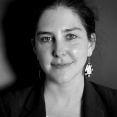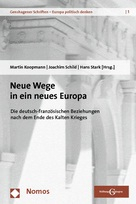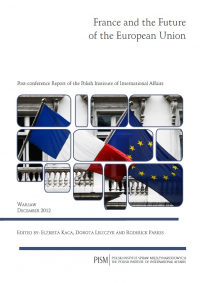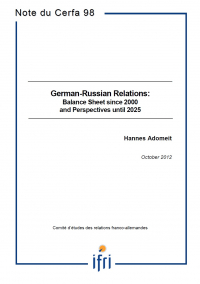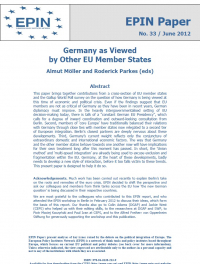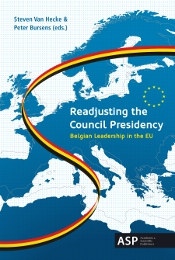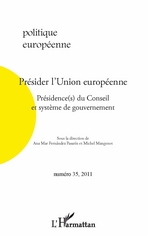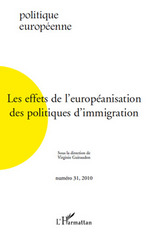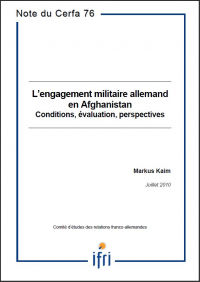Der 50. Jahrestag des Elysée-Vertrages am 22. Januar 2013 bietet einen geeigneten Anlass, die deutsch-französischen Beziehungen in Europa neu zu vermessen. Die Folgen des Umbruchs von 1989 betrafen nicht nur die globale und die europäische...

Germany (Cerfa)
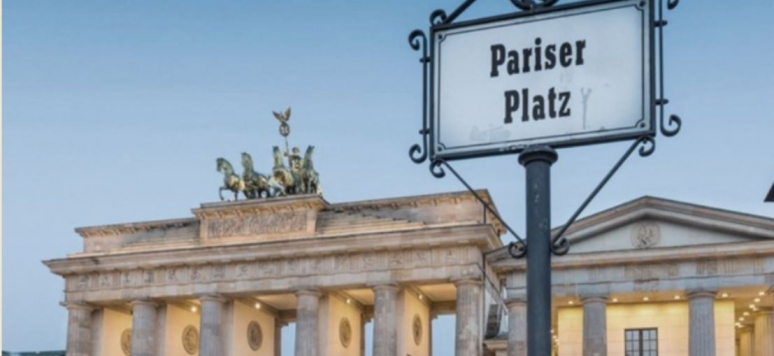
The Study Committee on Franco-German Relations (Cerfa) was founded by an intergovernmental treaty between the Federal Republic of Germany and the French Republic in 1954. It has analyzed relations between the two countries for over 60 years. The Cerfa engages in a wide range of activities. It promotes the Franco-German debate and policy-oriented research through conferences and seminars that bring together experts, policy-makers, decision-makers and civil society representatives of both countries.
The Cerfa publishes regularly books reflecting on the current state of Franco-German relations and two research note series – Notes du Cerfa and Visions franco-allemandes – that target primarily French decision-makers, with the aim of elucidating political, economic and social evolutions in contemporary Germany, and closely following current developments in Franco-German relations.
The Cerfa maintains close relations with the network of German foundations and think-tanks, including the Konrad Adenauer Foundation, Friedrich Ebert Foundation, Heinrich Böll Foundation, German Council on Foreign Relations (DGAP), Genshagen Foundation, French-German Institute (DFI), and German Institute for International and Security Affairs (SWP).
Through its successive interactive and ad hoc cooperation programs, the Cerfa promotes the emergence of a new Franco-German generation:
- In the year 2021, the Cerfa started a Program on Multilateralism with the Konrad Adenauer Foundation in Paris. This program aims at creating a Franco-German network bringing together young professionals interested in the topic of multilateralism in the context of their work. It consists in working sessions based on briefings and workshops with selected experts and practitioners covering a broad range of issues relating to multilateralism, such as international trade, health, human rights and migration, non-proliferation and disarmament.
Previous initiatives:
- The Franco-German Future Dialogue co-organized by the Cerfa together with the DGAP and with the support of the Bosch Foundation aimed at creating a new Franco-German generation by developing exchanges and debates between French and German young professionals and PhD students.
- The Daniel Vernet Group (formerly the Franco-German group of reflection) had been founded in the Fall of the year 2014 at the initiative of the Genshagen Foundation.
Secretary General of the Study Committee on Franco-German Relations (Cerfa)
...Research Fellow, Study Committee on Franco-German Relations (Cerfa)
...Research Fellow, Study Committee on Franco-German Relations (Cerfa)
...Assistante
Counselor on Franco-German relations at Ifri
...The relationship between Germany and Russia, according to official portrayals in Berlin, is one of ‘strategic partnership’ supplemented by ‘modernisation partnership’. The closeness and at times demonstrative cordiality of the relations have given rise to suspicion about Germany being an...
Since the fall of the Berlin wall and the end of the old world order, the French have, in their collective consciousness, associated Germany with the question of their own leadership. The awareness that Paris’ political and diplomatic influence on the international stage has been eroding did...
This paper brings together contributions from a cross-section of EU member states and the Gallup World Poll survey on the question of how Germany is being viewed at this time of economic and political crisis.
The introduction of the Lisbon Treaty entailed the most fundamental changes to the rotating presidency to date. This contribution analyses the institutional framework under which the 2010 Belgian Presidency of the Council of Ministers operated. It examines the changes and tries to assess to...
Following its pragmatic emergence in the EU political landscape, the Presidency of the European Council was the most visible part of the rotating Presidency until the entry into force of the Lisbon Treaty. An in-depth analysis of this function shows its long dependency on the half-year...
Since the beginning of 2010, German authorities have become conscious of the fact that they cannot continue to maintain the Bundeswehr’s involvement in Afghanistan with a majority of the German population opposing it. It is clearly understood that the federal government and the Bundestag will...
European countries, lead by France, are expected to take a decision soon on the development and acquisition of MALE drones.
...



